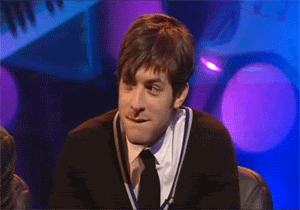Although British producers may not be entirely responsible for the astonishingly forward-thinking rap releases of this year—Yeezus, My Name Is My Name, Old, Nothing Was The Same and WOLF—their injection of transcontinental sensibilities has helped push rap music in a new direction. We’ave come a long way since Mark Ronson was our only tadpole in a sea full of Timbalands, Just Blazes and Neptunes. At the turn of the century, Britain was a manufacturer of smalltime guitar bands and pop artists that weren’t as beautiful or talented as Justin Timberlake. The best it had to offer in terms of urban music sat somewhere between Roots Manuva and Craig David. But a few years later, Eskibeat migrated from Rhythm Division records and, in the form of Dizzee Rascal's Boy In Da Corner, reached the ears of Mercury Music Award judges. It would be a few years more before Britain had a commercially successful urban music scene, but eventually UK rap started to dominate the airwaves. The commercialisation of grime, regardless of where you stand, helped put the UK back on the map. Diddy wanted to sign Skepta, Tinie Tempah was being played at college football games and Dizzee Rascal was no longer just a familiar face around Bow E3. Although arguably detrimental to the genre, the chart success of Dizzee Rascal, and later, other rap and urban artists like M.I.A, heralded a new age for British music that was adapting to a multicultural and plural musical mix.A few years later, the British sound of the mid 00s started to infiltrate and inform the creative process of American artists. Dizzee Rascal’s Boy In Da Corner remains a reference point for Danny Brown. Speaking to Tim Westwood, Brown said: “If it wasn't for Dizzee Rascal, if it wasn't for grime music in general, The Streets, I wouldn't make the music I make now. So, I've gotta give them all the props in the world. It's a big influence. It was a big influence on what I wanted to do and then, especially, how their careers went, how they're so huge but still, they still doing what they want to do."This sound has manifested itself in the latter stages of Danny’s career. His latest release, Old, features three British producers. Paul White, the South London producer plucked from relative obscurity by Brown to work on five tracks, previous collaborator Darq E Freaker and, newcomer to the Danny Brown production circle, Rustie.Rustie, who is signed to Warp Records, released his first record in 2011, which later won The Guardian First Album Award. He’s part of the electronic contingent, alongside the likes of Skream and James Blake, that stoked the fire of British experimental music overseas. It’s this side of production that has found a strong foothold in enhancing the exploratory techniques of today’s rappers.In January 2013, Hudson Mohawke (like Rustie, he’s also from Scotland), signed with G.O.O.D music. As part of TNGHT, Mohawke became a focal point as trap-centric material flooding the internet. It’s this sound that prompted Kanye West to enlist Hud Mo as a producer on several of the tracks from Yeezus. He’s listed as having worked on “I Am A God”, “New Slaves” and “Blood On The Leaves”, which also includes a sample of TNGHT’s banger “R U Ready”. Alongside Hudson Mohawke, Kanye also employed the skill of another British producer, Evian Christ, presumably after finding him residing somewhere on HypeBeast.Kanye West and Danny Brown aren’t the only two musicians who have benefited from working with British producers. On his second record, Take Care, Drake famously collaborated with Jamie XX. On a similar note, on his new record, Nothing Was The Same, he’s worked with Sampha, on both pre-album cut “The Motion” and a track on the record, “Too Much”.Most recently, Chance The Rapper collaborated with James Blake on the track, “Life Round Here”. Essentially, the ties between British and American artists have become much more closely intertwined. The creative soundscapes crafted in the United Kingdom have provided a mouldable blueprint for much of the music made this year, and will continue, forever more.Follow Ryan on Twitter @RyanBassilRead more like this:The Evolution of J DillaThis is a New Golden Age for Hip HopTHE EVOLUTION OF THE NEPTUNES
At the turn of the century, Britain was a manufacturer of smalltime guitar bands and pop artists that weren’t as beautiful or talented as Justin Timberlake. The best it had to offer in terms of urban music sat somewhere between Roots Manuva and Craig David. But a few years later, Eskibeat migrated from Rhythm Division records and, in the form of Dizzee Rascal's Boy In Da Corner, reached the ears of Mercury Music Award judges. It would be a few years more before Britain had a commercially successful urban music scene, but eventually UK rap started to dominate the airwaves. The commercialisation of grime, regardless of where you stand, helped put the UK back on the map. Diddy wanted to sign Skepta, Tinie Tempah was being played at college football games and Dizzee Rascal was no longer just a familiar face around Bow E3. Although arguably detrimental to the genre, the chart success of Dizzee Rascal, and later, other rap and urban artists like M.I.A, heralded a new age for British music that was adapting to a multicultural and plural musical mix.A few years later, the British sound of the mid 00s started to infiltrate and inform the creative process of American artists. Dizzee Rascal’s Boy In Da Corner remains a reference point for Danny Brown. Speaking to Tim Westwood, Brown said: “If it wasn't for Dizzee Rascal, if it wasn't for grime music in general, The Streets, I wouldn't make the music I make now. So, I've gotta give them all the props in the world. It's a big influence. It was a big influence on what I wanted to do and then, especially, how their careers went, how they're so huge but still, they still doing what they want to do."This sound has manifested itself in the latter stages of Danny’s career. His latest release, Old, features three British producers. Paul White, the South London producer plucked from relative obscurity by Brown to work on five tracks, previous collaborator Darq E Freaker and, newcomer to the Danny Brown production circle, Rustie.Rustie, who is signed to Warp Records, released his first record in 2011, which later won The Guardian First Album Award. He’s part of the electronic contingent, alongside the likes of Skream and James Blake, that stoked the fire of British experimental music overseas. It’s this side of production that has found a strong foothold in enhancing the exploratory techniques of today’s rappers.In January 2013, Hudson Mohawke (like Rustie, he’s also from Scotland), signed with G.O.O.D music. As part of TNGHT, Mohawke became a focal point as trap-centric material flooding the internet. It’s this sound that prompted Kanye West to enlist Hud Mo as a producer on several of the tracks from Yeezus. He’s listed as having worked on “I Am A God”, “New Slaves” and “Blood On The Leaves”, which also includes a sample of TNGHT’s banger “R U Ready”. Alongside Hudson Mohawke, Kanye also employed the skill of another British producer, Evian Christ, presumably after finding him residing somewhere on HypeBeast.Kanye West and Danny Brown aren’t the only two musicians who have benefited from working with British producers. On his second record, Take Care, Drake famously collaborated with Jamie XX. On a similar note, on his new record, Nothing Was The Same, he’s worked with Sampha, on both pre-album cut “The Motion” and a track on the record, “Too Much”.Most recently, Chance The Rapper collaborated with James Blake on the track, “Life Round Here”. Essentially, the ties between British and American artists have become much more closely intertwined. The creative soundscapes crafted in the United Kingdom have provided a mouldable blueprint for much of the music made this year, and will continue, forever more.Follow Ryan on Twitter @RyanBassilRead more like this:The Evolution of J DillaThis is a New Golden Age for Hip HopTHE EVOLUTION OF THE NEPTUNES

Advertisement
Advertisement
